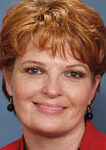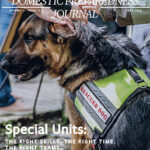When a U.S. agency or private-sector company is developing standards for national defense and/or homeland security, it is helpful to first find out what other international SDOs (standards developing organizations) are doing, if only to make sure that the U.S. efforts are not duplicative and therefore wasteful. Although it is easy to focus only on U.S. needs, the United States is certainly not the only country in the world concerned with standards development in the fields of national defense and homeland security. Moreover, an approved standard may end up being substandard if the available pool of international expertise is ignored.
To begin with, if there is an interest in developing a certain standard, it is up to the standards convener, the SDO, and the principal stakeholders to do the homework needed to confirm the originality or uniqueness of the development project by confirming that the standard sought is not already in process or even finalized and approved by SDOs in other countries.
On the other hand, if the project is determined to be a first, it is up to the convener, the SDO, and the stakeholders involved to at least consider the benefits that might be achieved by including international stakeholders and experts in the standards development process.
Risks and Rewards, Security and Other Considerations
There are other factors, including but not limited to the following, to take into account when considering standards input from international stakeholders:
International Relevance – This is particularly important if the SDO claims its standards have international relevance because that can be determined only if there is a fair balance of international stakeholder input during the standards development process. Of course, a standard may have relevance to another country, but the funding and time required for development of the standard may cause the other country’s process to be too slow for fast-track U.S. concerns. In cases such as this, there is still opportunity to benefit from the proceedings and determinations of an outside standards group, even if there is good reason – e.g., a need to expedite the project – to keep a separate standards process within a silo of U.S.-only participants It also should be remembered that, even if a standard does not have international relevance, it still could benefit from the input provided by non-U.S. experts.
Technical Competition – The international relevance of a particular standard may be more important in the area of trade than in the interest of global harmonization. This is just a point to keep in mind, because international industry representatives will usually if not always be involved in the process in any case and, after the standard is approved, will be competing with U.S. manufacturers in the fields of national defense and homeland security services and products. Although it is advantageous to the United States itself that international industry can help fund the standard-setting processes needed to proceed more expeditiously, there are several other important issues to consider. For example: (a) whether non-U.S. industry representatives could delay the development of a standard urgently needed by the United States; (b) whether there is the possibility of over-influence on standards by non-U.S. entities; (c) the possibility of the United States over-purchasing, from non-U.S. sources, important products; and/or (d) future product sabotage made possible by the greater in-depth technical knowledge of a standard acquired by non-U.S. entities. Despite these and other negatives, data still should be collected on any similar non-U.S. standards-development projects, even those in which foreign entities are not included as stakeholders.
Security – Opening the door to international input on standards can result in the successful development of quality standards – improved, perhaps, by the added benefit of global expertise – but it also opens a second door: to potential security problems. For the most part, national standards are not mandated, so it is up to the user of the standard to determine if it fits the perceived need for which the standard is being developed. It is therefore up to the user to also determine if the standard – in the field of information technology, for example – has any security components incorporated into the standard and/or product to make it acceptable for use. For that and other reasons, U.S. stakeholders should actively seek to be contributors to internationally developed standards that they intend to use – primarily to ensure that U.S. security considerations are properly addressed and incorporated into the consensus decision-making process.
In summary, it is important to understand that there is, literally, a whole world of knowledge outside the United States that, thanks to the inclusion of international input and expertise, can ensure that U.S. standards of national-security interest are quality products.
Potential risks and benefits always should be addressed, however. There is inevitably some risk involved in any type of information sharing, and those risks should be discussed and resolved at the table to ensure that the final standard benefits all of the stakeholders involved.
For additional information about a particular standard and/or international activity related to that standard, check with: (a) the International Organization of Standardization (ISO) at https://www.iso.org/developing-standards.html; and/or (b) the American National Standards Organization (ANSI) at https://www.ansi.org/iso/us-representation-in-iso/introduction Both organizations provide links to technical committees that can be accessed for all areas of standards, lists of standards that each committee is working on, details about the standard’s proposed applicability, the current status of a particular standard, and the names of persons to contact for additional information.

Diana Hopkins
Diana Hopkins is the creator of the consulting firm “Solutions for Standards.” She is a 12-year veteran of AOAC INTERNATIONAL and former senior director of AOAC Standards Development. Most of her work since the 2001 terrorist attacks has focused on standards development in the fields of homeland security and emergency management. In addition to being an advocate of ethics and quality in standards development, Hopkins is also a certified first responder and a recognized expert in technical administration, governance, and process development and improvement.
- Diana Hopkinshttps://www.domesticpreparedness.com/author/diana-hopkins
- Diana Hopkinshttps://www.domesticpreparedness.com/author/diana-hopkins
- Diana Hopkinshttps://www.domesticpreparedness.com/author/diana-hopkins
- Diana Hopkinshttps://www.domesticpreparedness.com/author/diana-hopkins






